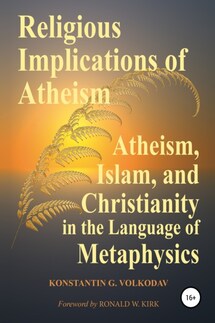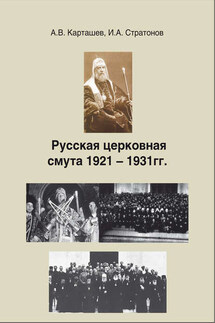Religious Implications of Atheism - страница 28
That is why the Gentiles of different countries and nations easily understood each other, because the psychology of idolatry was almost the same everywhere. In the Roman Empire, Babylon and Egypt the profession of non-local religions by foreigners was tolerated, provided that they honor traditional local (state) gods. Only Christianity was persecuted everywhere, because from the point of view of the Gentiles it undermined the fundamental principles of any religion. Indeed, the New Testament says that the religious worldview (in the pagan sense) is fundamentally wrong.
But unfortunately, in historical Christianity the pagan approach and the Christian actually coexist in parallel. This is not surprising, because the Old Testament also abounds with examples of the facts that, despite all the divine revelations, people often inclined to paganism. This is a very big and important topic. For brevity, we confine ourselves to only three aspects: views on theology, worship, and the organization of the believers’ community (the Church).
Firstly, the intellectual cognition of the mysteries of the reality does not necessarily lead to understanding the mystery of God himself. If we cognize the material world by the methods of science and philosophy, then this will only lead to other questions. But a purely logical conclusion about the existence of God is not enough for the Christian faith in him. If an atheist loses in a dispute with some very clever believer and will be forced to recognize correctness of Christianity, the logically correct conclusions will not let him touch the reality of God and to go through any religious experience. This phenomenon is practically non-formalizable. A human can only feel that he knows about God personally, from his own experience, but not by hearsay, not by logical evidences, not forced by any authority.
In Judaism (Old Testament prophets), Christianity, and Islam, the knowledge of God is spoken of in terms of “daath Elohim” (Heb. אֱלהִים «Elohim», Strong’s lexicon number 430, דַּעַת «daath», Strong’s lexicon number 1847, cf. Hos. 4:1) [48], denoting the highest destiny of human, the meaning and purpose of his life. This is not theoretical (theological) knowledge, but spiritual closeness achieved through love for God and the fulfillment of his commandments. The meeting of the saints with God is described in the Bible as a meeting of two free personalities.
This is probably the key problem of atheism. Atheists take a rational-speculative path, in which they obviously cannot meet God. However, the same problem can apply to religious people if their hearts are not sincerely turned to God (Matt. 15:8; Mark 7:6).
And yet it is necessary to emphasize another property of theological calculations—these are just models collected from the data of Revelation. Between the formulated truth and reality there is a link, but not an identity.
Therefore, Christians seek a meeting with God and stand before the mystery of God, and not before the knowledge of him, accumulated by many generations in the past centuries. It is necessary to distinguish the partial Revelation from the fullness of what is still offered to our knowledge, from the vision of God himself. St. Gregory the Theologian in the fourth century said about this, that if we could collect all the data of the Revelation and create from them the most rich and full image of God, if at this moment we foolishly say, “Here is our God,” we would create an idol that closes the vision of the true God, instead of creating a transparent image that would allow us to see through it a reality that is more and more superior to it.






